West African leaders have been called upon to provide protection for women from all forms of attacks. The call was made by two Civil Society Organizations with interest in women protection, thus Women Human Rights Defenders (WHRDs) and Human Rights Defenders (HRDs).
According to the Executive Director of the Gender Centre for Empowering Development (GenCED) Esther Tawiah, the attacks, which they deemed as a violation of human rights include but not limited to repression, , threats and intimidation against them and their families, defamation campaigns orchestrated by the use of social media, and bans on leaving or returning to their countries.
Others are harassment at the workplace, arbitrary arrest and detention, or ill-treatment, and even assassination.
She made the call on behalf of the Civil Society Organisations (CSOs), during the launch of a report from GenCED on a study conducted in six West African countries on the situation of WHRDs and other vulnerable HRDs in West Africa, in Accra.
Out of the total number studied, 54 percent were females and 46 per cent were males with ages ranging between 18 and above 49.
Highlighting more of the challenges faced by women in the sub-region, the report noted challenges such as lack of access to justice, which were as a result of lack of financial resources, a situation that made it difficult for them to raise fees against the judicial harassments they suffered and against the criminal challenges against them.
Ms. Tawiah said the impunity enjoyed by the perpetrators of the violations was particularly worrying, explaining that they were high in situations of internal conflict or crisis and in countries where the judiciary did not have independence to sanction perpetrators of violations.
Another challenge faced by the entire HRDs, she said were difficulty in raising funds, particularly those working in local communities due to the cumbersome formalities and complicated funding process that required expertise.
The language barriers and weakness of digital means of communication in the sub-region also led to poor collaborations between HRDs networks, and that contributed to a little development in the exchange of experience on protection issues between non-governmental organisations and varied language-speaking countries.
The Executive Director said in many occasions, when women right based CSOs insisted and address challenges African women face, society and culture perceive them as social deviants, and people who are trampling on culture and heritage.
Some of the women rights she stated are inequality, polygamy, hereditary rights, female genital mutilation, the sexuality of young women and their right to sexual education, gender identity and expression, the legal age of marriage and the equitable sharing of resources and wealth particularly from the extractive industries.
To address these challenges among others, Ms. Tawiah and the CSOs called on the government to develop, strengthen and implement laws for the promotion and protection of CSOs that stand to defend these vulnerable women, hence insisting that their rights are respected in accordance with international standards.
She also called on various leaders to establish a complaint system adapted to the WHRDs in order to stop impunity for attacks against them and strengthen the law on internet access and use in accordance with international standards, while charging governments and other CSOs to join forces to strengthen human rights education programmes and the role of HRDs for the benefit of communities, for the dissemination and popularization of the provisions contained in the UN Declaration on HRDs.




